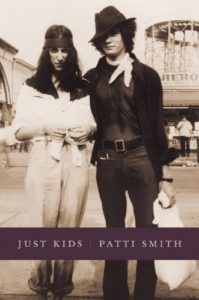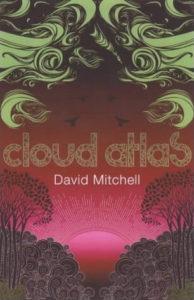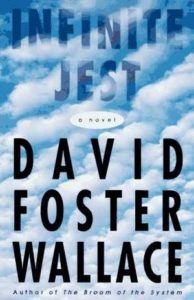It sounds like a great idea, or at least a revealing one: Assemble a list of the most important books of the last two decades, in any genre, from poetry to the novel. Find accomplished writers in a variety or genres — Rebecca Solnit, Jonathan Lethem, Roxane Gay, Ann Padgett, Patti Smith, and so on — and ask them for their favorites since 1997.
“The end of December is a time when we are bombarded with end-of-year lists—so much so that they start to blur together,” Michele Filgate wrote in a recent post on LitHub. “But what about the books that stay with us for years?”
The list of 128 volumes that emerged from this is intriguing, at least, and makes no pretension to bring scientific, complete, objective, or whatever. It’s just a few dozen smart and famous people picking their favorite books. The big winners, it turns out, are David Foster Wallace’s “Infinite Jest,” Edward P. Jones’ “The Known World,” and Cormac McCarthy’s “The Road,” all tied for first.
But here’s what’s most fascinating and a bit troubling: This trio of celebrated novels — the ultimate victors in this poll — got only three votes each. And only a handful of other books got more than one vote. (David Mitchell’s “Cloud Atlas,” “Americanah” by Chimamanda Ngozi Adichie, Elena Ferrante’s Naples quartet, Bolano’s “2666,” and eight others got a whopping two votes apiece.)
So pretty much what we have here is 29 really smart writers — Rick Moody, Maggie Nelson, Geoff Dyer, and other luminaries — speaking mostly to themselves.
Of course, it’s not really the fault of the assembled scribes, most of whom would be in my council of sages and some of whom are acquaintances of mine. And while some would argue that literature and books of history and poetry are not well served by the kind of list-making associated with “Late Night With David Letterman” and “High Fidelity,” I’m not among them: We make all sorts of lists and rankings in our heads, consciously, or unconsciously, all the time. Anyone who has edited an anthology, designed a college or high school course, chosen what to read this week for fun, what to give a friend for Christmas, or what to throw in the beach bag for summer vacation has been through this kind of thing in some form. As the Mekons song says, “ We make big decisions every day.”
But part of what we see on this list, I think, is the result of decades of running do wn the canon. Not just a rigid canon monopolized by “dead white European males,” but the idea of a canon itself.
wn the canon. Not just a rigid canon monopolized by “dead white European males,” but the idea of a canon itself.
We live in a period where the very notion of consensus, at least in the world of culture and journalism (remember Edward S. Herman’s and Noam Chomsky’s “Manufacturing Consent”?) connotes a kind of middlebrow plot cooked up by Judy Miller. So it should not surprise us that none of these esteemed American writers — most of whom belong to one of the two PEN groups and go to the same Brooklyn or Echo Park parties, mostly share a left-liberal politics, and often clink glasses at literary fairs and spend a weekend each spring at the Los Angeles Times Book Festival, and so on — can’t really agree on the best, most enduring work in their own field.
The polled writers, for the most part, came of age after the great canon revolts at places like Brown (where the New Curriculum of 1969 made it possible so that “every student might study what he chose, all that he chose, and nothing but what he chose”), Wesleyan, and Stanford (where the cry ““Hey, hey, ho, ho, Western culture’s got to go!” became a great gift to reactionary fools like William Bennett.) They have been taught, in some cases, that the notion of a canon or core curriculum itself — even if it’s liberalized with women and writers and color and so on — is by nature phallic or oppressive or whatever.
In an attempt to emulate the LitHub list, this Stanford-born, Wesleyan-educated reader and writer assembled a hasty kitchen cabinet which included some critic friends, my (Brown-schooled) college mentor, my librarian wife, California’s poet laureate, the best-read indie rocker I know, and, you know, a young guy I met at the coffee shop who was wearing a T-shirt inspired by David Foster Wallace. Ten smart people, at the very least, from three generations and two coasts.
My poll actually came out almost as horizontal as LitHub’s: Of a few dozen books nominated by 10 people, only three got more than two votes. Patt Smith’s “Just Kids” ti ed “Infinite Jest” and “Cloud Atlas”; each got four votes. (My judges were heavy on Gen X and music-lovers.)
ed “Infinite Jest” and “Cloud Atlas”; each got four votes. (My judges were heavy on Gen X and music-lovers.)
A few tomes did better here than on LitHub: Junot Diaz’s “The Brief, Wondrous Life of Oscar Wao,” Joan Didion’s “Where I was From,” Alex Ross’s “The Rest is Noise,” all got multiple votes. But for the most part we had trouble agreeing in anything, either.
Canons, of course, consolidate over time: We could certainly come up with a firmer, more stable list of the best, say, albums from the ‘60s, or movies from the ‘70s, or alt-rock bands from the ‘80s than we could with their 21st century equivalents. (Even if the “Forever Changes” fans tossed grenades at the “Pet Sounds” army, the “Godfather II” enthusiasts made war on the “Chinatown” crowd, cardigan-clad followers of the Smiths arm-wrestled the R.E.M. brigade, and so on.)
The LitHub list certainly has a lot of very strong and wide-ranging work. Is it better to have 128 books on that list, with only three volumes getting more than two votes, than a list of half as many, with more clustering over a few hits? (In other words, a less horizontal and more vertical list.)
Maybe there’s a way of looking at the LitHub list’s flatness as a triumph of diversity. But to me, it says that whatever good things arrived with the coming of multiculturalism, the fragmenting of consensus delivered by the Internet, and the revolts against required readings and cultural gatekeepers and musty old canons and everything else, one of the things that’s ocurred is the loss of a common language.
Without a lingua franca, I’m wishing us all luck in the coming years: We may need it.

